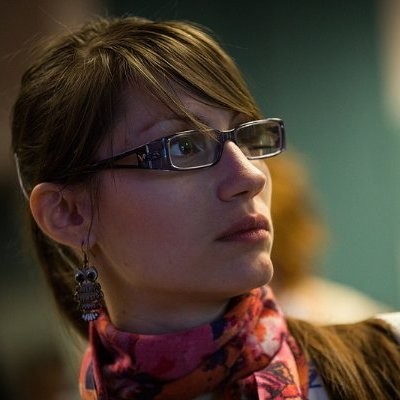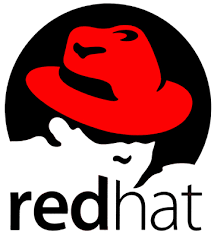Ansible
See the following -
4 Ways to Open Up Your Project's Infrastructure
 Open source isn't just about opening up your code—it's also about building a supporting infrastructure that invites people to contribute. In order to create a vibrant, growing, and exciting project, the community needs to be able to participate in the governance, the documentation, the code, and the actual structures that keep the project alive. If the overall "hive" is doing well, it attracts more individuals with diverse skills to the project. Although many projects strive for "open everything," infrastructure is often closed to contribution. Usually, only a few people run the infrastructure and keep the lights on. They're sometimes unable to recruit help because, well, you can't really give the keys to the kingdom to everyone. A certain level of trust is needed before granting a contributor access to project infrastructure...
Open source isn't just about opening up your code—it's also about building a supporting infrastructure that invites people to contribute. In order to create a vibrant, growing, and exciting project, the community needs to be able to participate in the governance, the documentation, the code, and the actual structures that keep the project alive. If the overall "hive" is doing well, it attracts more individuals with diverse skills to the project. Although many projects strive for "open everything," infrastructure is often closed to contribution. Usually, only a few people run the infrastructure and keep the lights on. They're sometimes unable to recruit help because, well, you can't really give the keys to the kingdom to everyone. A certain level of trust is needed before granting a contributor access to project infrastructure...
- Login to post comments
An Introduction to Libral, a Systems Management Library for Linux
 Linux, in keeping with Unix traditions, doesn't have a comprehensive systems management API. Instead, management is done through a variety of special-purpose tools and APIs, all with their own conventions and idiosyncrasies. That makes scripting even simple systems-management tasks difficult and brittle. For example, changing the login shell of the "app" user is done by running usermod -s /sbin/nologin app. This works great until it is attempted on a system that does not have an app user. To fix the ensuing failure, the enterprising script writer might now resort to...
Linux, in keeping with Unix traditions, doesn't have a comprehensive systems management API. Instead, management is done through a variety of special-purpose tools and APIs, all with their own conventions and idiosyncrasies. That makes scripting even simple systems-management tasks difficult and brittle. For example, changing the login shell of the "app" user is done by running usermod -s /sbin/nologin app. This works great until it is attempted on a system that does not have an app user. To fix the ensuing failure, the enterprising script writer might now resort to...
- Login to post comments
Edge computing and the importance of open infrastructure
 The "edge" is diverse, dispersed, often independently owned and operated, and comes with a set of constraints not addressed in the average data center. Old sci-fi films painted a picture of how computers would permeate every facet of life in the future. It has come to pass, and it happened almost without us noticing: having PCs at home became commonplace, our mobile phones turned into small smart devices, and our cars began making decisions for us, controlled by thousands of sensors and controllers. Self-driving cars, augmented and virtual reality, smart homes and more all underscore our rapidly emerging dependence on distributed computing infrastructure.
The "edge" is diverse, dispersed, often independently owned and operated, and comes with a set of constraints not addressed in the average data center. Old sci-fi films painted a picture of how computers would permeate every facet of life in the future. It has come to pass, and it happened almost without us noticing: having PCs at home became commonplace, our mobile phones turned into small smart devices, and our cars began making decisions for us, controlled by thousands of sensors and controllers. Self-driving cars, augmented and virtual reality, smart homes and more all underscore our rapidly emerging dependence on distributed computing infrastructure.
- Login to post comments
EdLogics Addresses Health Literacy Gap with Linux Container and Cloud Solutions from Red Hat
 Red Hat, Inc., the world's leading provider of open source solutions, today announced that EdLogics, a health education-based consumer engagement company and innovator in game-based learning, has built its digital health literacy platform on container and cloud solutions from Red Hat, including Red Hat OpenShift Container Platform, Red Hat JBoss Middleware, and Ansible by Red Hat. EdLogics’ Education-as-a-Service offering, based on Red Hat technology, is aiming to transform the way consumers learn about health and improve health literacy while simultaneously cutting consumer costs...
Red Hat, Inc., the world's leading provider of open source solutions, today announced that EdLogics, a health education-based consumer engagement company and innovator in game-based learning, has built its digital health literacy platform on container and cloud solutions from Red Hat, including Red Hat OpenShift Container Platform, Red Hat JBoss Middleware, and Ansible by Red Hat. EdLogics’ Education-as-a-Service offering, based on Red Hat technology, is aiming to transform the way consumers learn about health and improve health literacy while simultaneously cutting consumer costs...
- Login to post comments
Open Invention Network Announces Expansion of its Patent Non-Aggression Coverage
 Open Invention Network (OIN), the largest patent non-aggression community in history, with well over 2000 organization members, announced today that it has expanded its patent non-aggression coverage through an update to its definition of the Linux System. The expansion focuses on core open source system and middleware level packages, including software packages that support the growing use of Linux in industries that include finance (e.g., blockchain), automotive, telecommunications and the internet-of-things (IoT). The expansion is part of Open Invention Network's program to regularly revise its Linux System coverage to keep pace with innovation...
Open Invention Network (OIN), the largest patent non-aggression community in history, with well over 2000 organization members, announced today that it has expanded its patent non-aggression coverage through an update to its definition of the Linux System. The expansion focuses on core open source system and middleware level packages, including software packages that support the growing use of Linux in industries that include finance (e.g., blockchain), automotive, telecommunications and the internet-of-things (IoT). The expansion is part of Open Invention Network's program to regularly revise its Linux System coverage to keep pace with innovation...
- Login to post comments
Open Invention Network Expands Open-Source Patent Protection Beyond Linux
 Today, everyone and their uncle -- yes, even Microsoft-- use Linux and open-source. A decade ago, Linux was under attack by SCO for imaginary copyright violations, and then Microsoft CEO Steve Ballmer was claiming that Linux violated more than 200 of Microsoft's patents. So Open Invention Network (OIN) patent consortium was formed to defend Linux against intellectual property (IP) attacks. The stakes may not be so high today, but Linux and open-source software is still under attack from patent trolls and other attackers...
Today, everyone and their uncle -- yes, even Microsoft-- use Linux and open-source. A decade ago, Linux was under attack by SCO for imaginary copyright violations, and then Microsoft CEO Steve Ballmer was claiming that Linux violated more than 200 of Microsoft's patents. So Open Invention Network (OIN) patent consortium was formed to defend Linux against intellectual property (IP) attacks. The stakes may not be so high today, but Linux and open-source software is still under attack from patent trolls and other attackers...
- Login to post comments
OpenStack Summit
In addition to OpenStack-related sessions, the event features Kata Containers, Ansible, Ceph, Kubernetes, ONAP, and more projects. Featured topics include CI/CD, container infrastructure, edge computing, HPC/GPU/AI, open source community, private and hybrid cloud, public cloud, telecom and NFV.
- Login to post comments